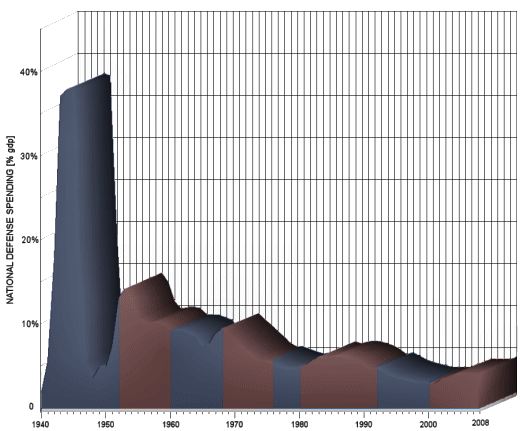When the Obama administration proposed canceling a host of expensive weapons systems last spring, some of the military industry’s allies in Congress assumed, as they had in the past, that they would have the final say. But as the president signed a $680 billion military policy bill on Wednesday, it was clear that he had succeeded in paring back nearly all of the programs and setting a tone of greater restraint than the Pentagon had seen in many years.
Now the question is whether Mr. Obama can sustain that push next year, when the midterm elections are likely to make Congress more resistant to further cuts and job losses. White House officials say Mr. Obama took advantage of a rare political moment to break through one of Washington’s most powerful lobbies and trim more weapons systems than any president had in decades.
Rahm Emanuel, the White House chief of staff, said Wednesday that the plan was to threaten a veto over a prominent program — in this case, the F-22 fighter jet — “to show we were willing to expend political capital and could win on something that people thought we could not”…
…Our military organization today bears little relation to that known by any of my predecessors in peacetime, or indeed by the fighting men of World War II or Korea. Until the latest of our world conflicts, the United States had no armaments industry. American makers of plowshares could, with time and as required, make swords as well. But now we can no longer risk emergency improvisation of national defense; we have been compelled to create a permanent armaments industry of vast proportions. Added to this, three and a half million men and women are directly engaged in the defense establishment. We annually spend on military security more than the net income of all United States corporations.
This conjunction of an immense military establishment and a large arms industry is new in the American experience. The total influence – economic, political, even spiritual – is felt in every city, every State house, every office of the Federal government. We recognize the imperative need for this development. Yet we must not fail to comprehend its grave implications. Our toil, resources and livelihood are all involved; so is the very structure of our society.
In the councils of government, we must guard against the acquisition of unwarranted influence, whether sought or unsought, by the military-industrial complex. The potential for the disastrous rise of misplaced power exists and will persist. We must never let the weight of this combination endanger our liberties or democratic processes. We should take nothing for granted. Only an alert and knowledgeable citizenry can compel the proper meshing of the huge industrial and military machinery of defense with our peaceful methods and goals, so that security and liberty may prosper together…

The Reagan/Bush I/Bush II teams ramped up military spending while preaching fiscal responsibility. They fed the beast both in peace and in war. Clinton began to trim the spending, but George W. summarily reversed his efforts – throwing in a few wars to up the ante. It’s a sticky economic problem. The military and the industry that supports it are major U.S. employers. Cutting military spending cuts jobs and leaves the communities that grew up around Defense Contractors and military bases in the lurch.
 All that aside, this was a sterling accomplishment, Obama’s paring back spending on a lot of unnecessary and exotic weaponry. Reagan, the Bushes, and the neoconservatives pursued a foreign policy that would position us as the military enforcer for the entire world. I don’t think we want to do that [or pay for it]. I’m not sure we ever did. The Republicans that followed Eisenhower never listened to him. I’m glad someone is finally trying to heed his warnings.
All that aside, this was a sterling accomplishment, Obama’s paring back spending on a lot of unnecessary and exotic weaponry. Reagan, the Bushes, and the neoconservatives pursued a foreign policy that would position us as the military enforcer for the entire world. I don’t think we want to do that [or pay for it]. I’m not sure we ever did. The Republicans that followed Eisenhower never listened to him. I’m glad someone is finally trying to heed his warnings.


Sorry, the comment form is closed at this time.